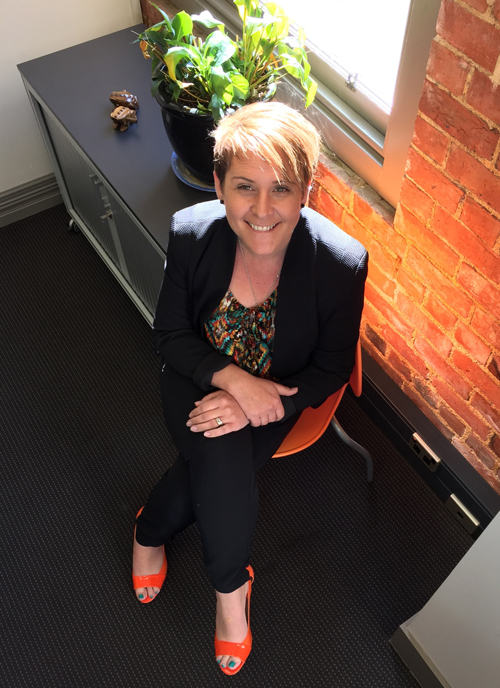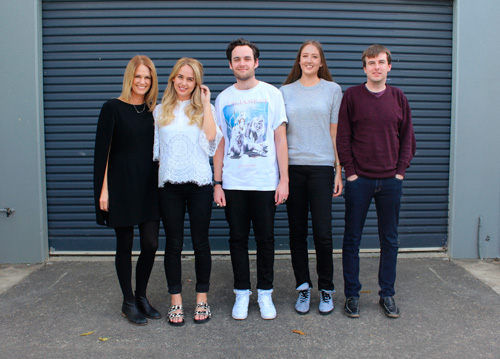Scope for growth
Webscope is a great example of how a merging of skill-sets and a collaborative team culture can result in more than satisfactory outcomes for clients.
Webscope is a great example of how a merging of skill-sets and a collaborative team culture can result in more than satisfactory outcomes for clients.
By Glenn Baker.
Launched in 2011, Webscope is an Auckland-based web development agency that resulted from three people getting together and agreeing on a service that would bridge the divide between a development house focused on high quality technical delivery and a creative agency.
Those three people are Sam Blackmore, Tim Clark and Katie Graham.
“Tim and I are both originate from the UK and grew up as Auckland ‘Westies’,” explains Sam. “Katie and I knew each other through contracting at the same agency and being active in the local open source community. I brought us all together to discuss forming a company and after determining we were all on the same wavelength, we made the commitment.”
The founders approached Webscope with differing skill-sets, forged through first-hand experience at a number of development agencies and the difficulties associated with delivering Drupal-based web applications.
Sam has a traditional software engineering background and wanted to apply modern agile software delivery processes following the Agile Manifesto (www.agilemanifesto.org) to achieve better outcomes.
Tim’s CV includes print designer, marketer and business owner. He brought some solid relationships to the company – relationships with individuals in large companies and corporates.
Katie was well immersed in the developer community. With many high profile clients, she brought the trust and backing required to get Webscope off its feet and in front of larger clients.
The trio’s initial alignment with larger scale clients sat well with one of their initial partners, Computer Concepts Limited. “We unofficially became their open source arm,” says Sam. “Working from their office we were able to set up our business with low overheads and an established client network.”
Eventually, growth dictated that they find their own space, to deliver a more targeted service and develop their own culture.
The desire to create a happy and supportive company culture was one of the main drivers behind setting up Webscope. “We wanted a company where we could look forward to coming to work,” explains Sam. “As we’ve grown it’s meant we’ve had no trouble attracting the best designers and developers.
“Creating great software is a highly collaborative, multi-disciplinary process that’s actually really good fun. Our culture provides an environment where everyone feels comfortable making suggestions and having them taken on board and implemented,” he says.
“In an industry notorious for quoting low, and for staff working evenings and weekends, we’re proud to be different.”
Client work pays the bills for Webscope, continues Sam. “However, we don’t see Webscope prospering without everyone investing back into the company. So we have ‘Investment Day’; once a month the whole team downs tools to explore their own interests. Perhaps new tools or exploring a new technology, writing a blog – the only proviso is that it should benefit Webscope as a whole.”
Webscope is also a ‘family first’ company, he explains. “We understand the pressures of raising a young family. So looking after family is a priority over work at Webscope. We also work remotely two days a week. This allows more family time and avoids the Auckland commute.”
Business growth hasn’t been without its lessons and challenges. Sam points out that they’re a technically focused company, so the art of marketing has been a bit of a learning curve. “We have the processes and the team to deliver complex business systems, but we’re still learning how to tell the world about that.”
There was also a tough lesson handed out when the majority of Webscope’s work was coming from two large clients, who both put projects on hold in the same month. “We quickly learned that we shouldn’t put all our eggs in a couple of baskets and we became better at both forecasting and scheduling in order to avoid this happening again,” says Sam.
As for business highs, he says it’s a tie between having employees say how much they appreciate working for Webscope and the company making this year’s Deloitte Fast 50 Index.
Business needs first
Sam, Tim and Katie are united in their view of what it takes to succeed in the demanding world of website development.
“Avoid agencies that overpromise and underdeliver,” is Sam’s advice to business owners. “These agencies tend to focus on selling features rather than outcomes – then disappear for three months before showing anything to the client! They also have a habit of going over time and budget.
“Find an agency that endeavours to understand your business and its needs, and can develop a strategy based on fulfilling your business goals and objectives.”
His advice is find someone who’ll define the ‘Minimum Viable Product’ – the least amount of work needed for you to see a return on your investment.
Ensure there’re regular work demos and planning meetings too, he says. “Ideally, work to a ‘sprint model’. This means you’re in charge of defining the budget and the work that’s completed in each sprint.”
Cautious ambitions
Webscope continues to grow with each successful client project completed. Standouts include a global software support portal for Software Of Excellence, and a platform for LinkMarketServices.com, New Zealand’s largest share registry provider, which manages AGMs for companies such as Spark and Xero.
But while they want to keep growing the business and take on more international clients, Sam, Tim and Katie don’t want to grow so big that they lose their special company culture and ability to adapt quickly.
“When we reach a certain level, our plan is to open offices in other cities or countries so no single office becomes too large,” explains Sam.
As for Webscope’s export potential, he says “the great thing about this industry and our ability to work remotely is that it’s easy to work with overseas clients – the only issue is dealing with timezones.
“And we certainly don’t complain when clients fly us overseas for meetings or to do a bit of work on-site!”



